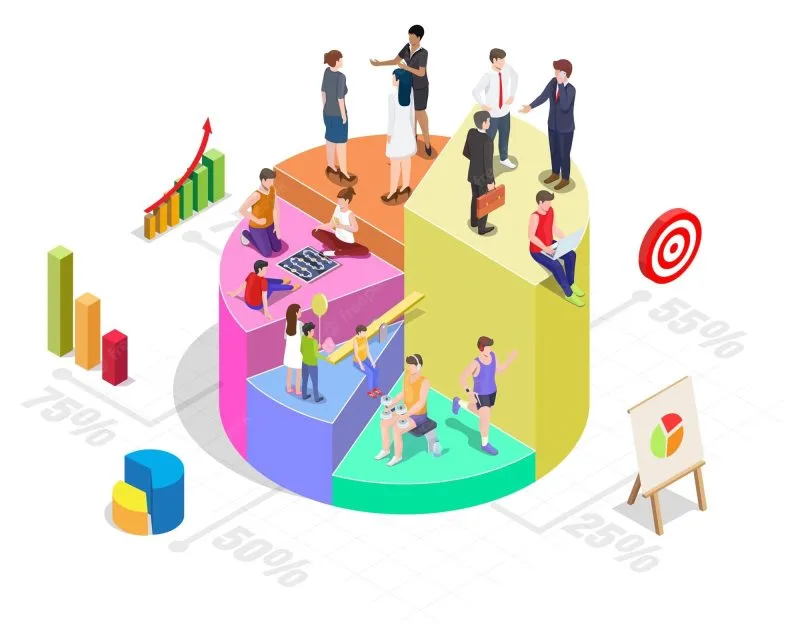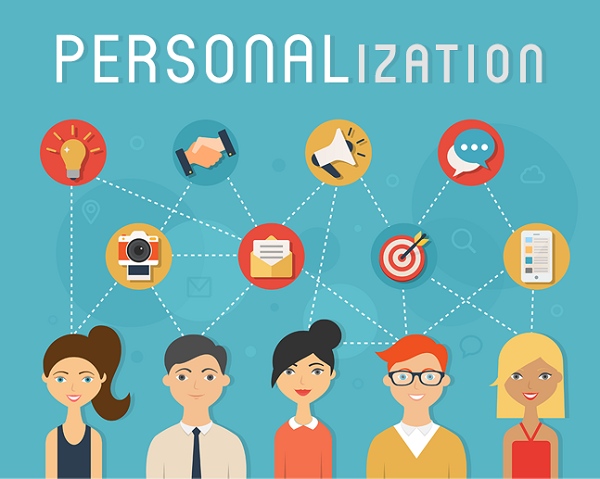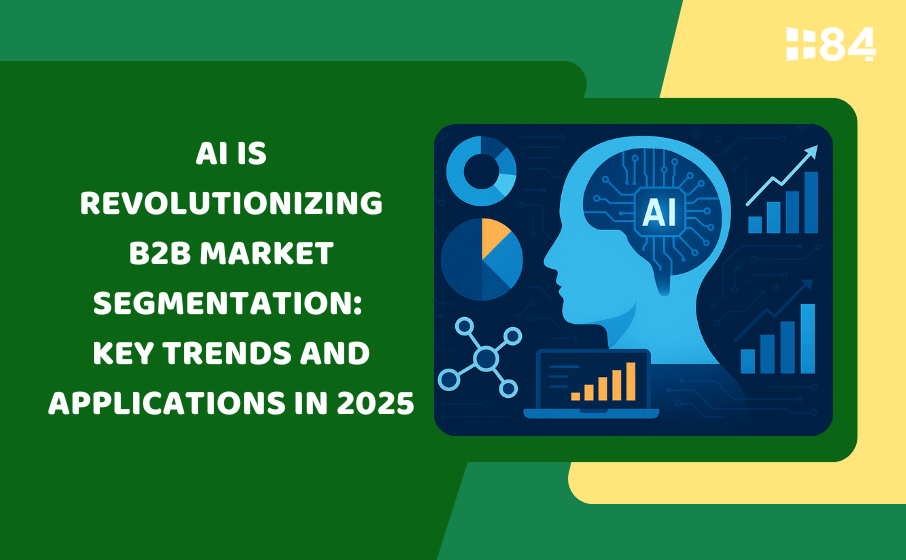In the ever-evolving and highly competitive B2B landscape, customer segmentation plays a critical role in helping businesses optimize their marketing strategies and reach the right target audience. However, with the massive volume and complexity of data today, traditional segmentation methods are becoming increasingly ineffective. This is where Artificial Intelligence (AI) emerges as a game-changing solution—enabling deep data analysis and customer behavior prediction to craft highly accurate and effective marketing strategies.
This article explores how AI is transforming the B2B market segmentation process, highlights the top B2B marketing trends in 2025, and examines how businesses can harness AI to drive success.
AI: The Silent Hero of B2B Market Segmentation
AI is more than just a technology—it’s a fresh force breathing new life into B2B marketing, offering undeniable advantages:
1. In-Depth and Holistic Data Analysis
One of AI’s most powerful strengths lies in its ability to perform comprehensive and deep data analysis. Rather than struggling with spreadsheets and manual reports, AI can process vast datasets from diverse sources such as CRM systems, websites, social media platforms, and sales data. This enables businesses to gain a thorough understanding of their customers—covering purchase behavior, preferences, needs, and digital interactions.
2. Accurate Target Customer Profiling
With its advanced data analysis capabilities, AI helps businesses develop precise and detailed customer personas. Instead of relying on vague assumptions, AI constructs these profiles based on real data, allowing companies to focus resources on high-potential prospects, optimize costs, and enhance marketing efficiency.
3. Smart Customer Segmentation
Beyond just analysis and profiling, AI brings intelligent segmentation to the table. Unlike traditional segmentation methods that rely on static criteria such as demographics or geography, AI enables dynamic segmentation based on behavioral patterns, preferences, needs, and even the customer’s stage in the buying journey. This results in flexible, real-time segments aligned with each phase of the marketing funnel—leading to more impactful campaigns.

Popular AI Applications in B2B Market Segmentation
AI’s rise in the B2B sector has truly revolutionized how market segmentation is conducted. It’s no longer just a tool—it’s a powerful enabler, unlocking hidden insights within customer data. AI is rapidly replacing traditional methods with unmatched efficiency and precision.
1. Chatbots and Virtual Assistants
AI-powered chatbots and virtual assistants are more than just automated response systems—they’re equipped with the intelligence to gather customer information effectively and segment users based on needs and interests. This allows sales teams to concentrate on high-quality leads, optimizing time and resources for better results.
2. Customer Data Analytics
AI excels at interpreting customer data, enabling businesses to gain deep insights into behavior, needs, and preferences. This insight supports smarter, more effective segmentation strategies that form high-conversion customer clusters.
3. Content Personalization
With AI, businesses can tailor marketing content to each customer segment, enhancing engagement and conversion rates. Rather than sending generic messages, companies can deliver highly relevant content aligned with individual preferences, creating a personalized and compelling customer experience.
4. Intelligent Advertising
AI serves as a smart navigator for B2B advertising campaigns. Leveraging data analysis and behavioral predictions, it helps businesses target the right audience, optimize ad spend, and improve campaign performance.
2025 B2B Market Segmentation Trends
The year 2025 marks a pivotal shift in B2B segmentation, with emerging trends poised to deliver significant value for businesses.
1. Behavior-Based Segmentation
One of the most prominent trends is the dominance of behavior-based segmentation. Instead of relying solely on static attributes like demographics or location, B2B companies are increasingly focusing on analyzing customer behavior—tracking website interactions, email engagement, social media activity, and more. This leads to more accurate and relevant segmentation, driving better marketing and sales outcomes.
2. Personalized Customer Experiences
Personalization is expanding beyond marketing content to encompass the entire customer experience. In 2025, AI empowers businesses to create highly tailored experiences for each customer—boosting engagement and loyalty. For example, AI can recommend products or services based on specific needs and preferences, or offer exclusive promotions tailored to individual profiles.

3. The Power of AI and Automation
The fusion of AI and automation is becoming the key to maximizing efficiency and productivity in B2B segmentation. While AI handles rapid and accurate data analysis, automation streamlines repetitive tasks—freeing up human resources for more strategic initiatives. This synergy results in time and cost savings, as well as enhanced campaign performance.
4. Unified Customer View from Multiple Data Sources
Another growing trend is the creation of a holistic customer view from various data sources. B2B companies are integrating CRM, website analytics, social media insights, sales data, and customer feedback into a single, unified picture. This comprehensive understanding enables more precise and effective segmentation decisions.
Strategic Recommendations for B2B Companies
To fully capitalize on AI in B2B segmentation, companies need a well-structured, integrated approach. This involves more than just adopting new technologies—it requires a harmonious combination of people, processes, and data. Key considerations include:
1. Invest in the Right AI Technologies
“No AI, no future”—this saying reflects AI’s critical role in today’s business environment. However, AI investments should be grounded in actual business needs and budget realities. Companies must clearly define their segmentation goals and select the AI platforms and tools that best align with those objectives.
2. Build a Capable Expert Team
“No one succeeds alone”—to truly unlock AI’s potential, businesses need skilled professionals in AI and marketing. This team will lead the deployment and management of AI-powered segmentation strategies, ensuring the technology is used purposefully and effectively.
3. Prioritize Customer Data Collection
“Data is the new gold.” In the digital era, high-quality customer data is invaluable. Companies should focus on collecting, managing, and analyzing customer data efficiently. The better the data, the better AI performs—and the more accurate the segmentation outcomes.
4. Test, Learn, and Optimize
“All beginnings are hard.” Adopting AI in B2B segmentation isn’t always a smooth journey. Businesses must continuously test and optimize their strategies to achieve the best results. This process requires patience, adaptability, and a willingness to learn from setbacks.
Conclusion
In today’s complex and competitive B2B market, AI-powered customer segmentation opens up breakthrough opportunities. It not only refines marketing strategies but also delivers deep data insights, sharpens customer targeting, and enhances campaign effectiveness.
Looking ahead, behavior-based segmentation, personalized experiences, and the convergence of AI and automation will continue to shape the future of B2B marketing. To stay ahead, companies must make smart AI investments, cultivate expert teams, and adopt flexible, data-driven strategies.
AI is no longer just a technology—it’s the key to unlocking deep customer insights, building sustainable competitive advantages, and achieving exceptional business success in the global B2B arena.


